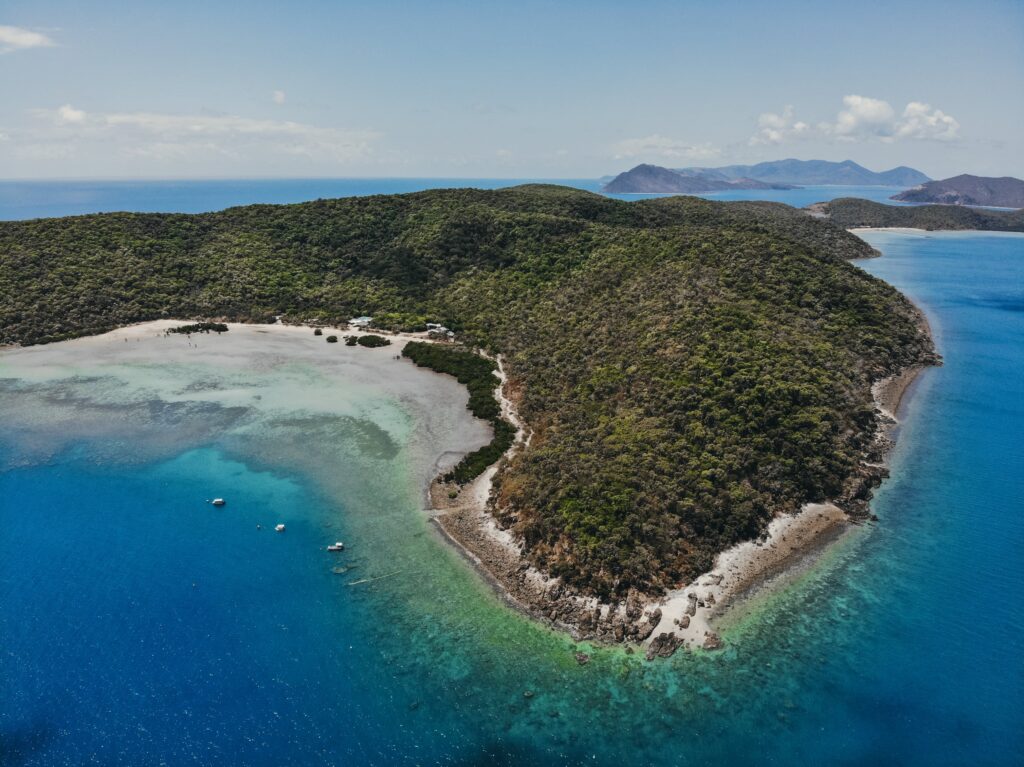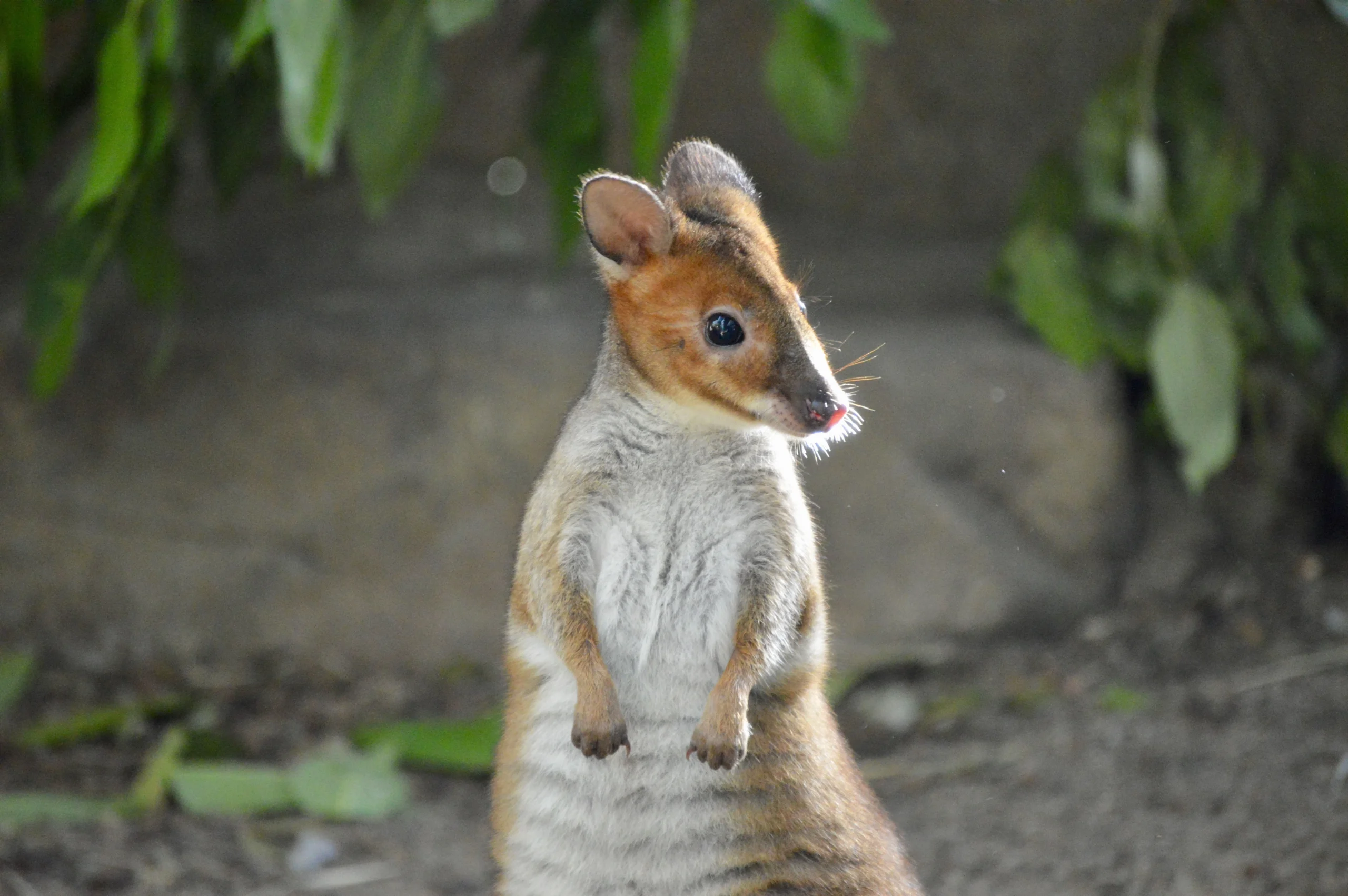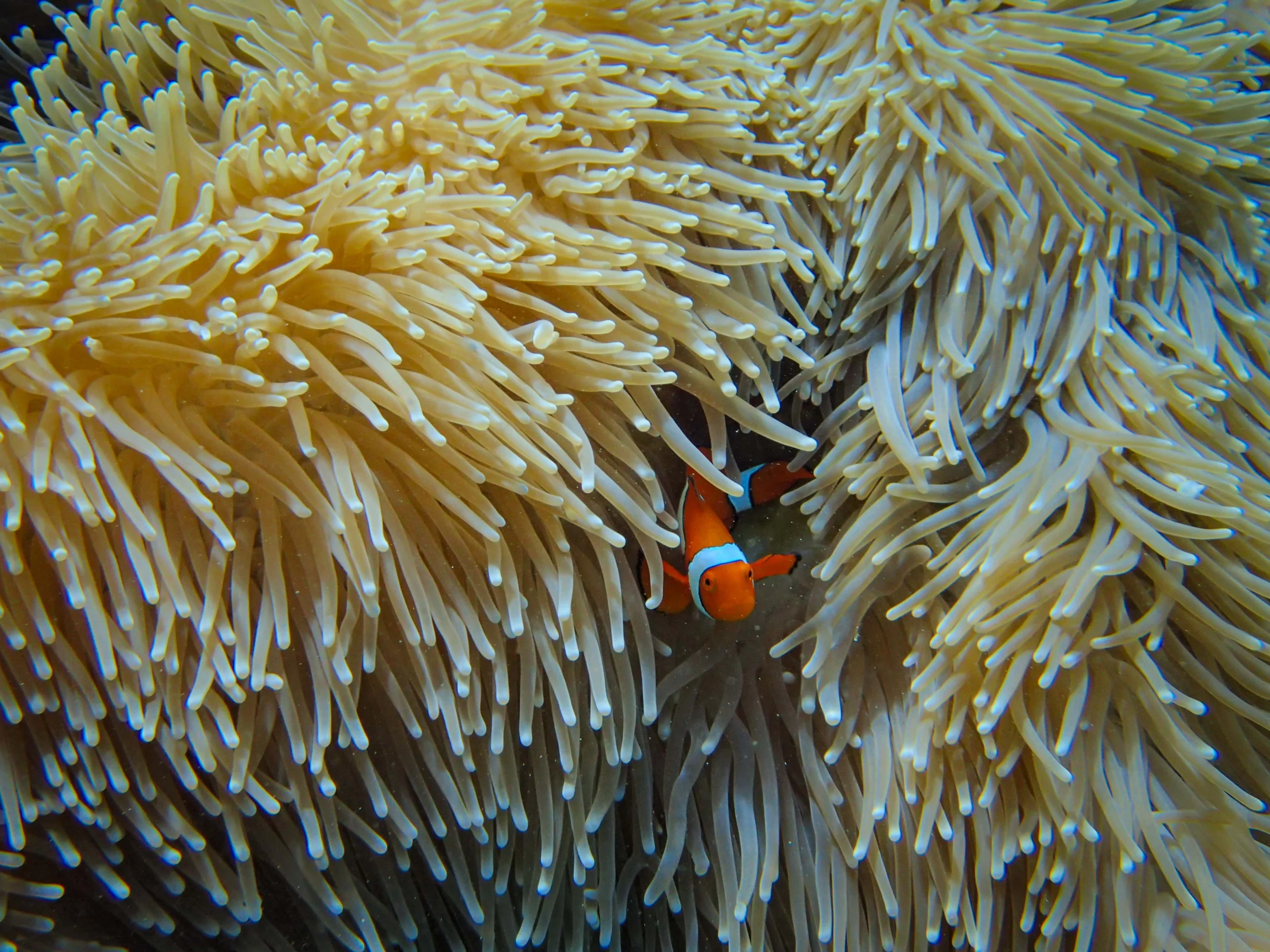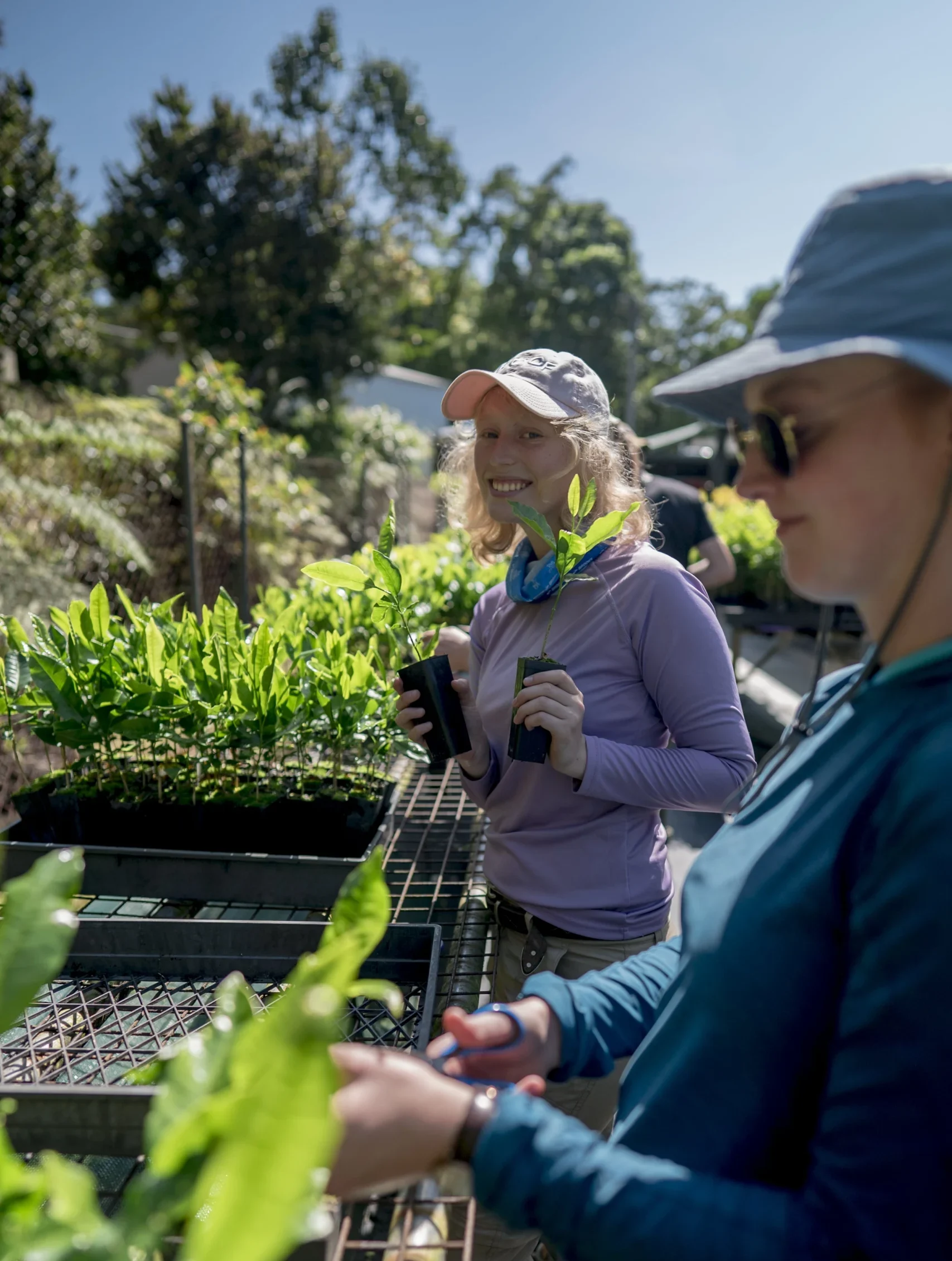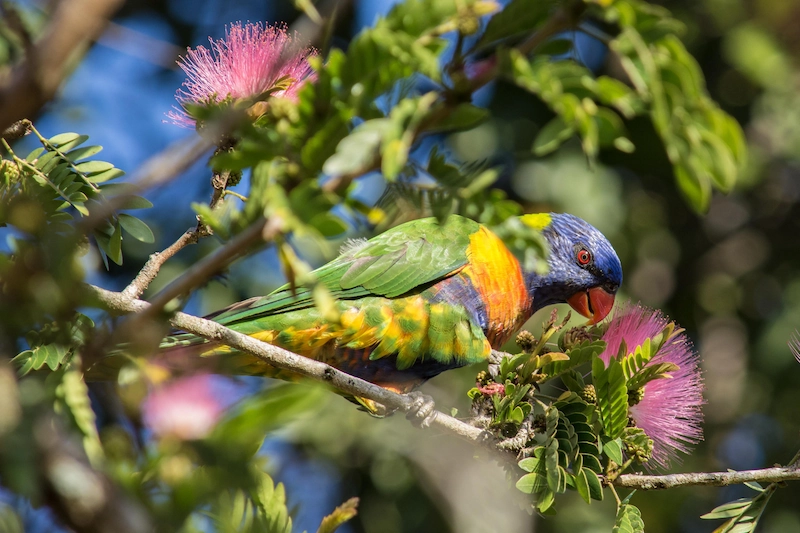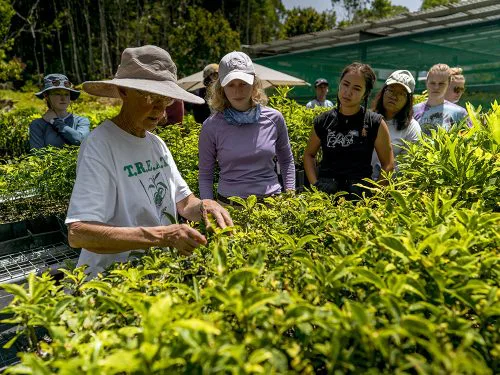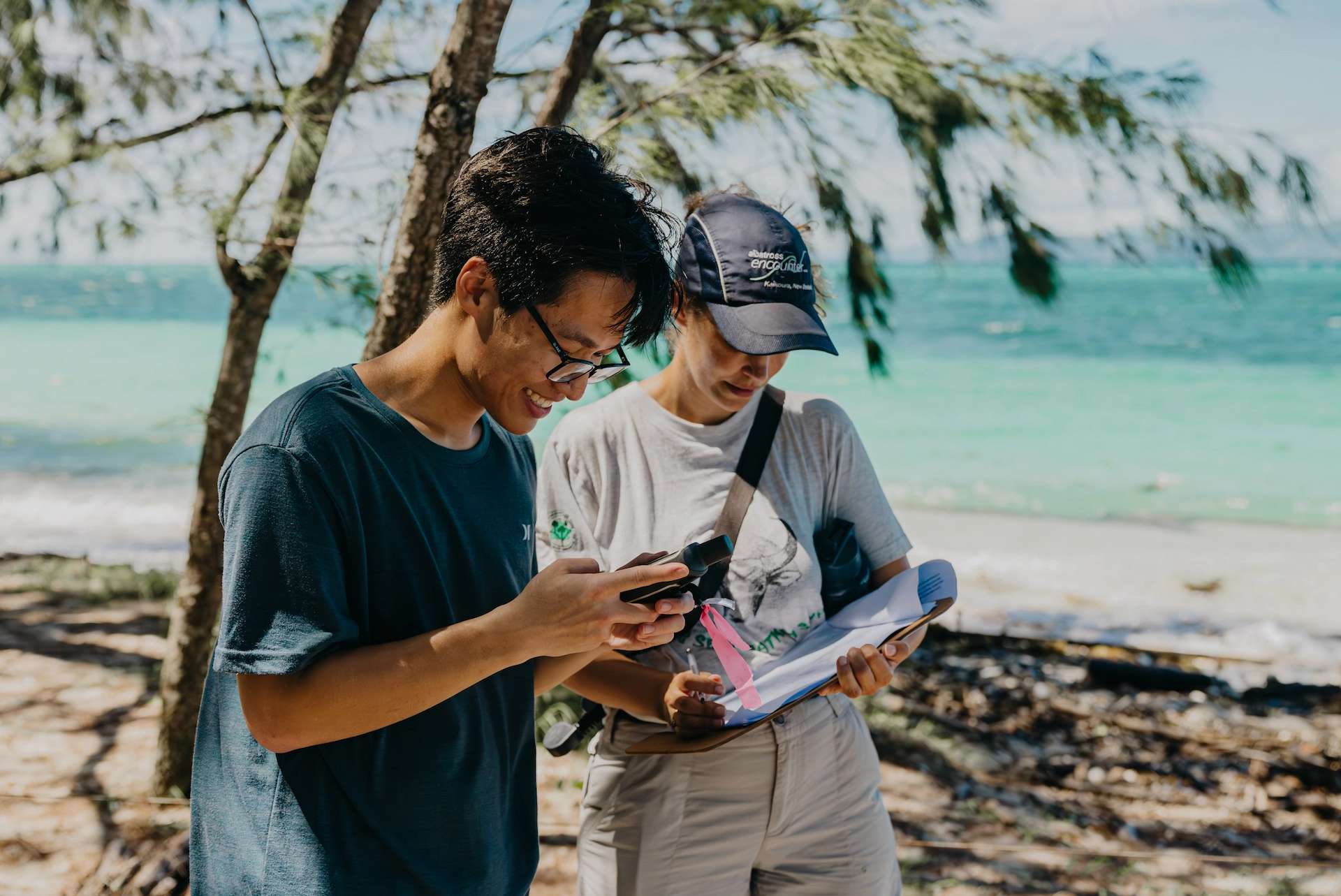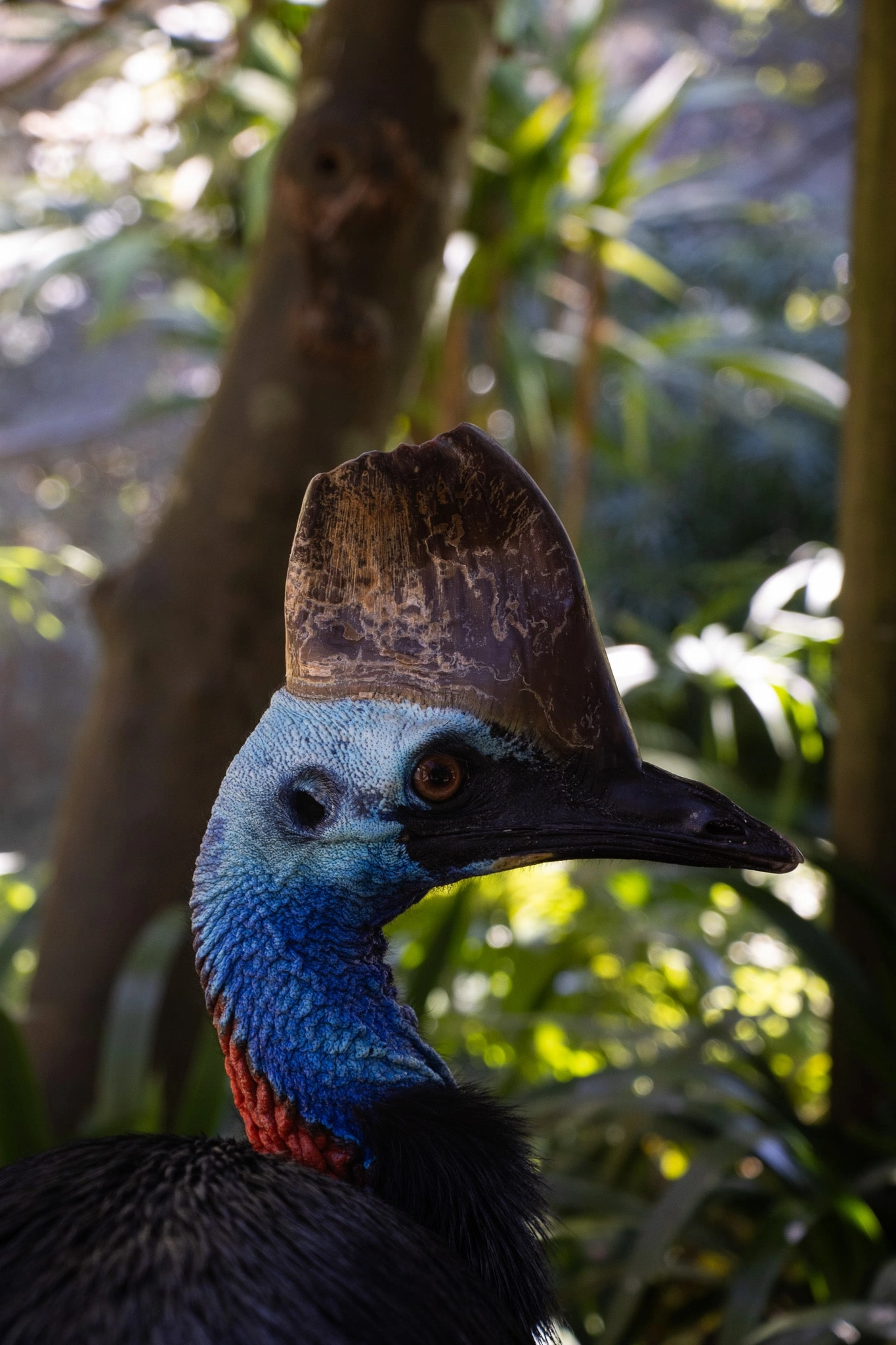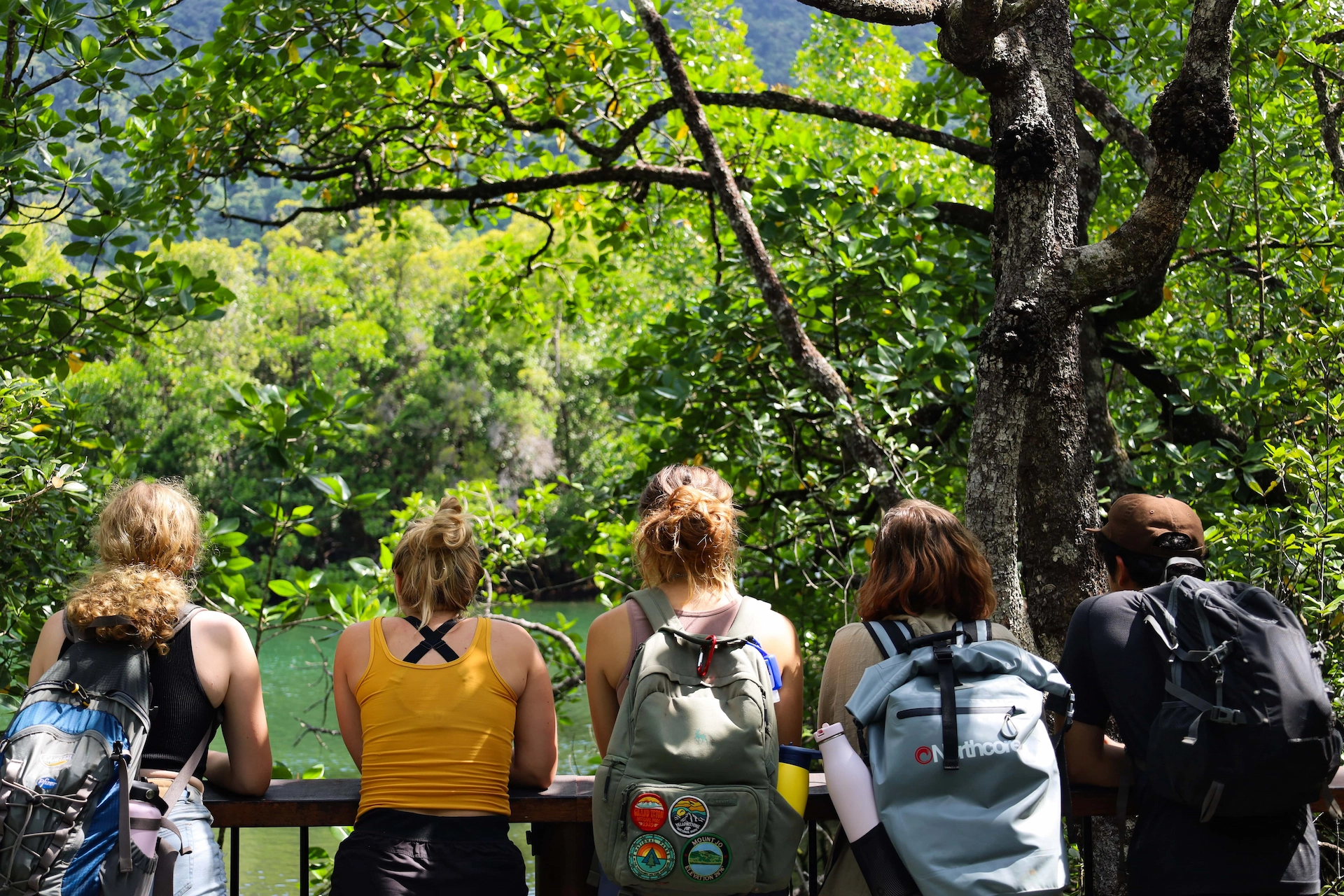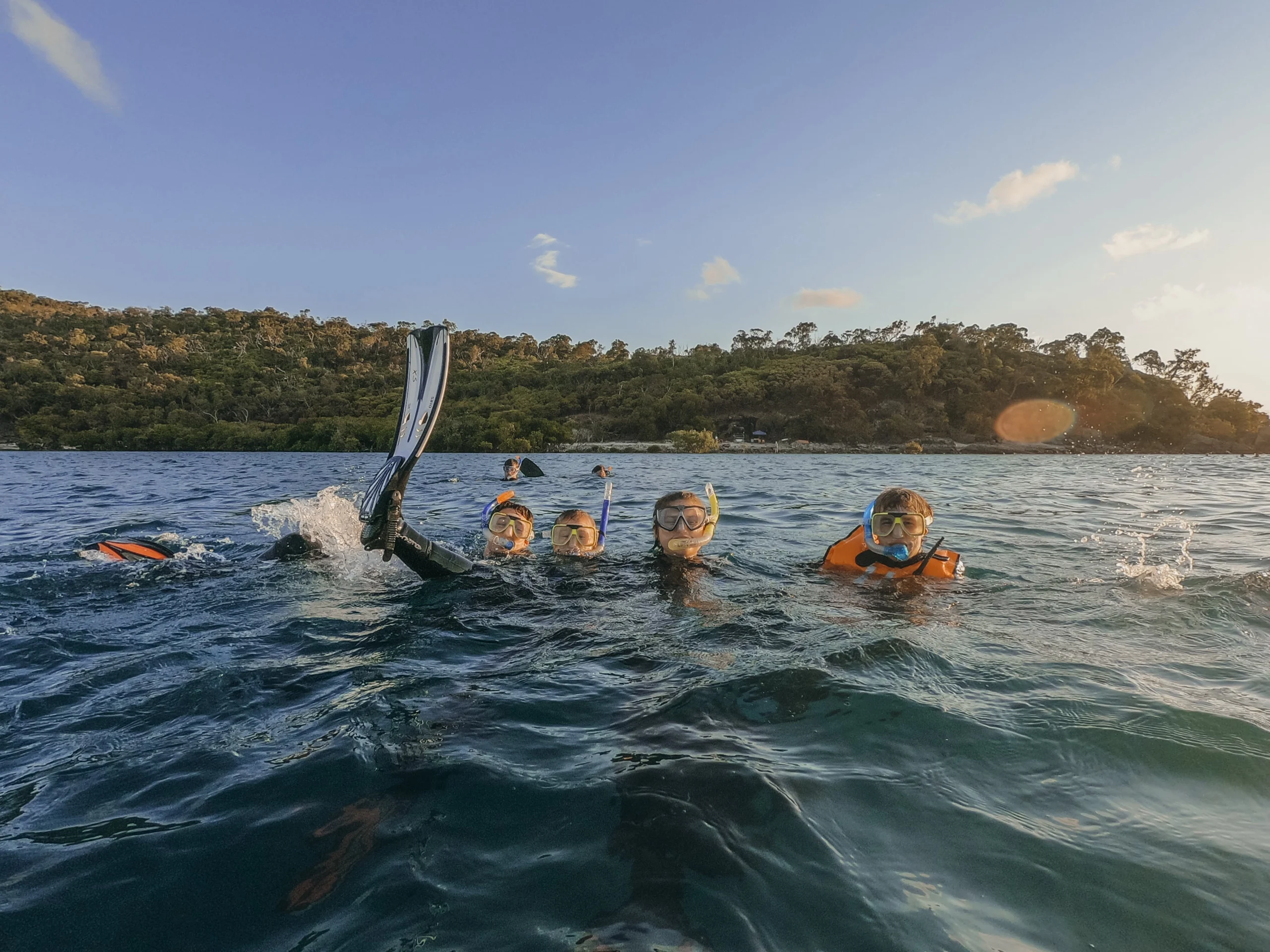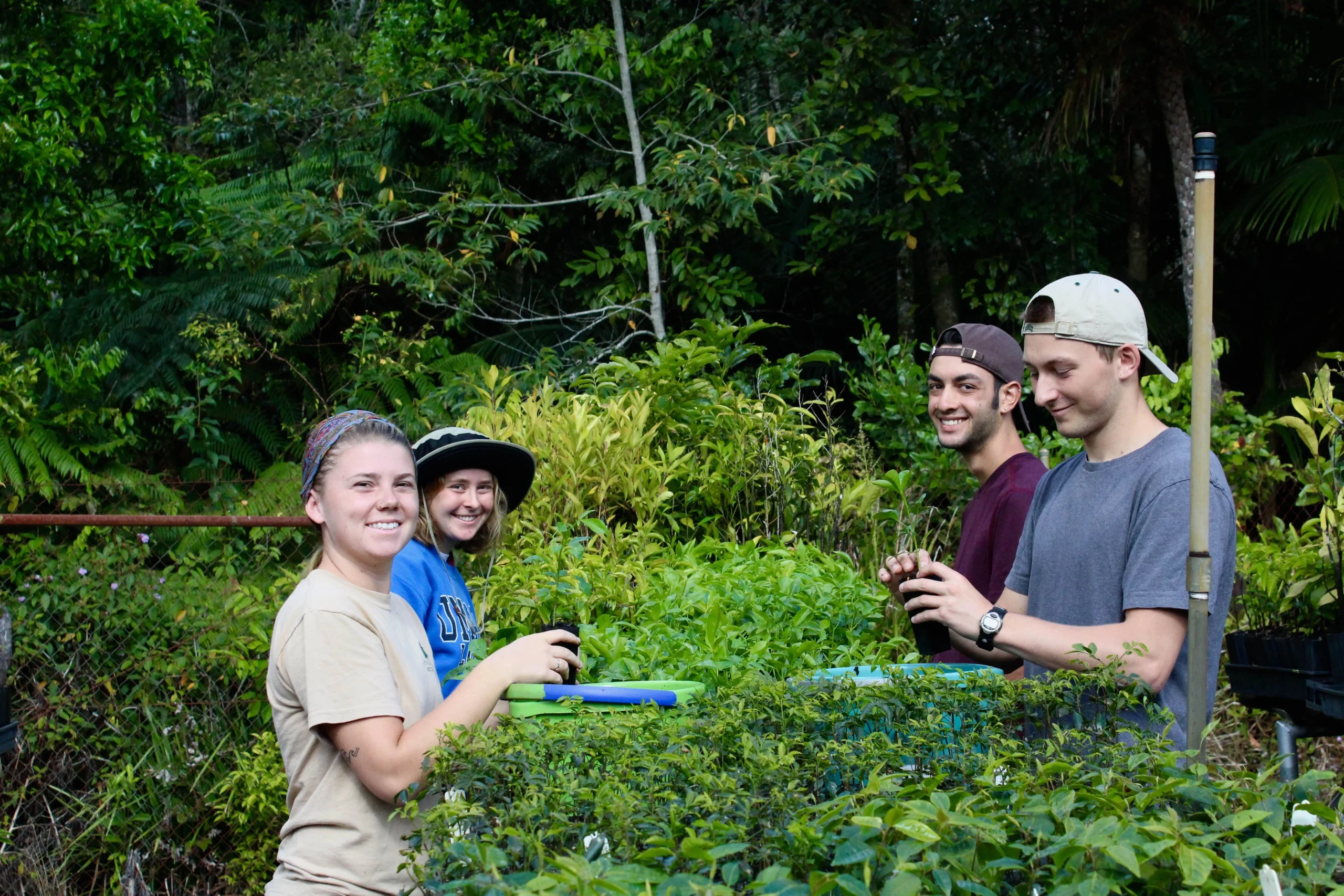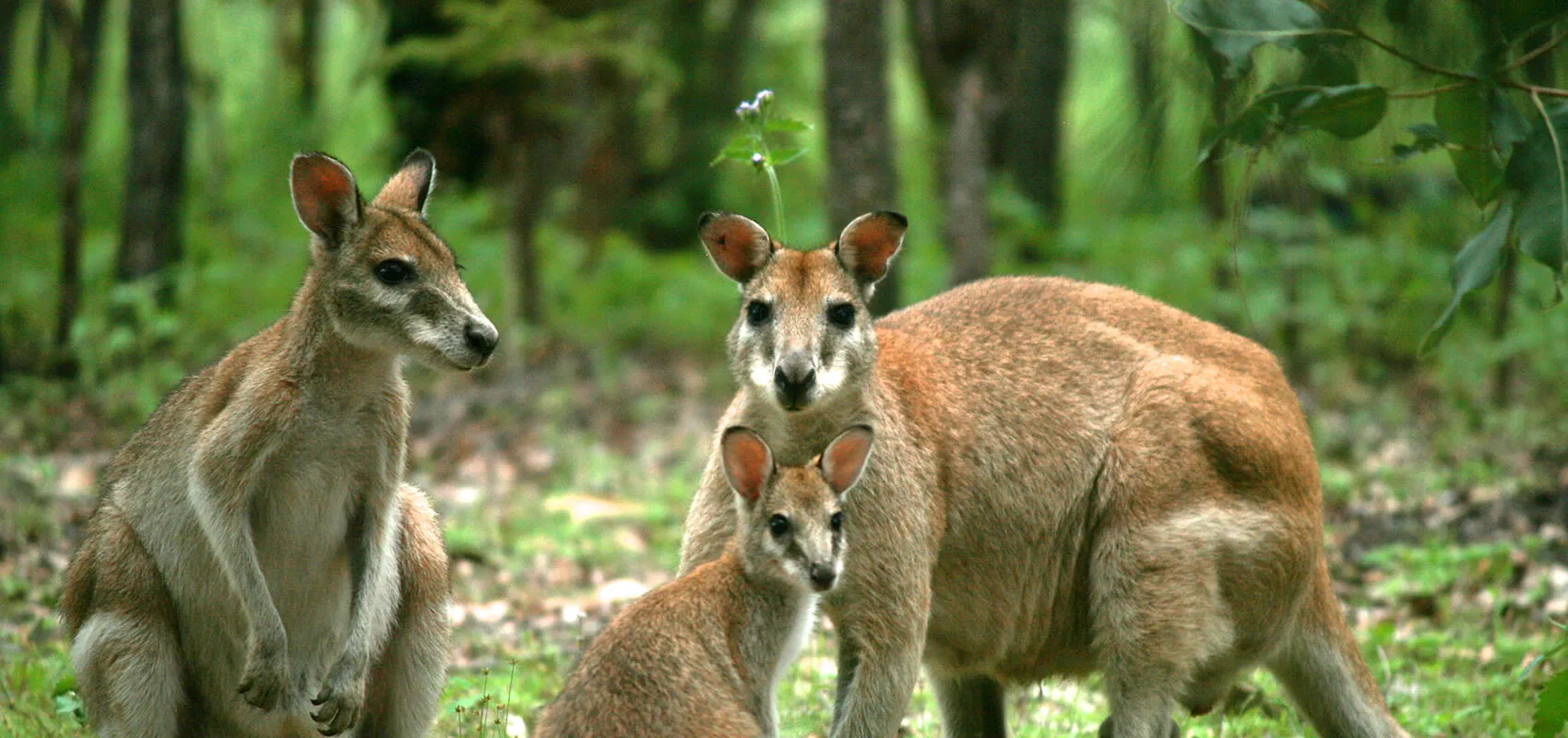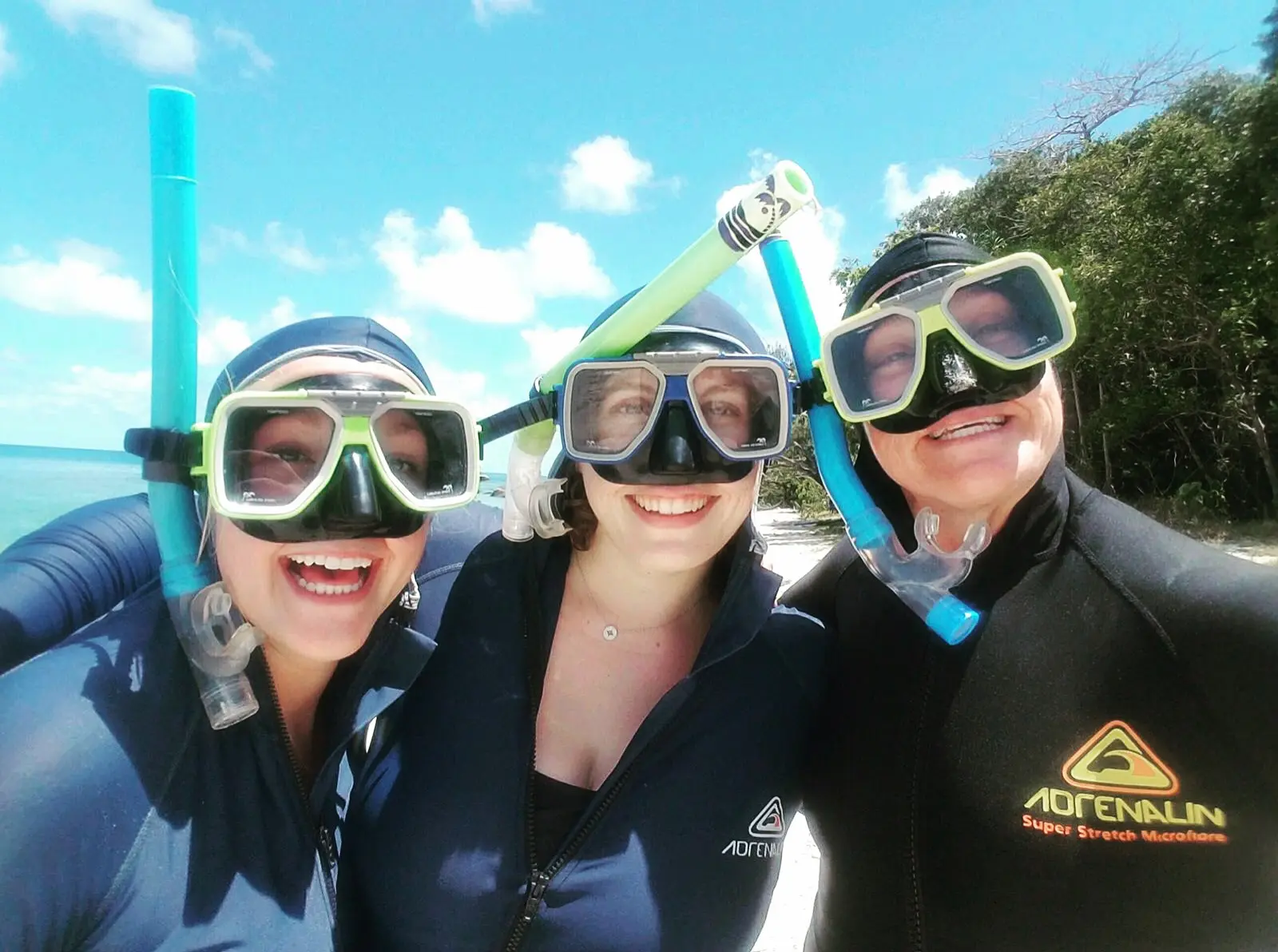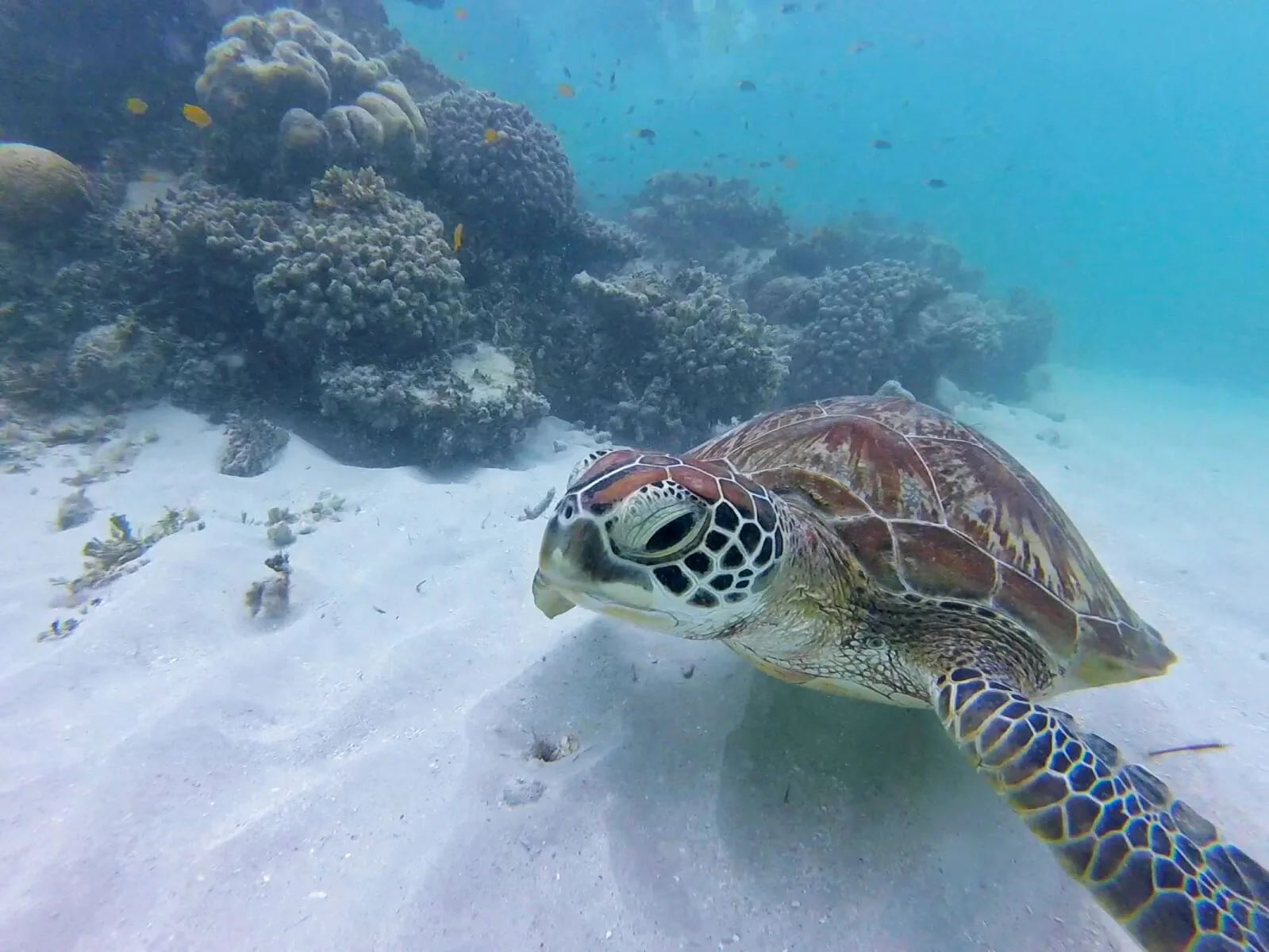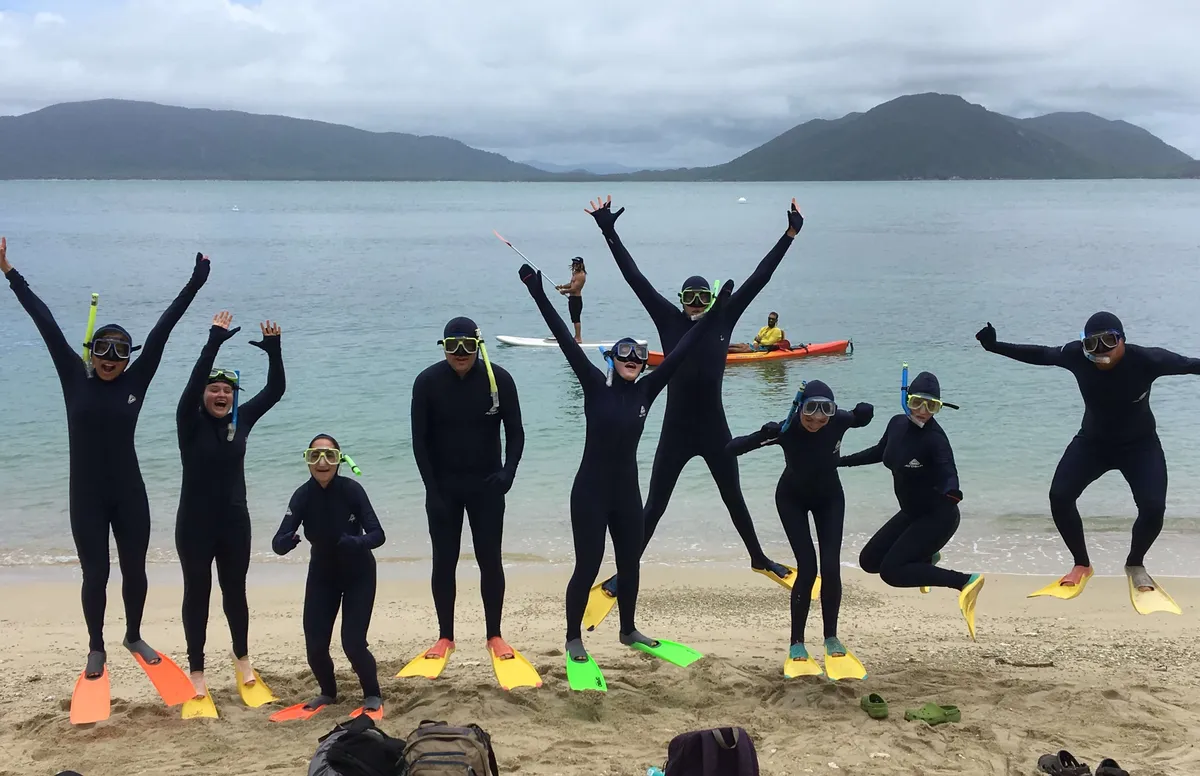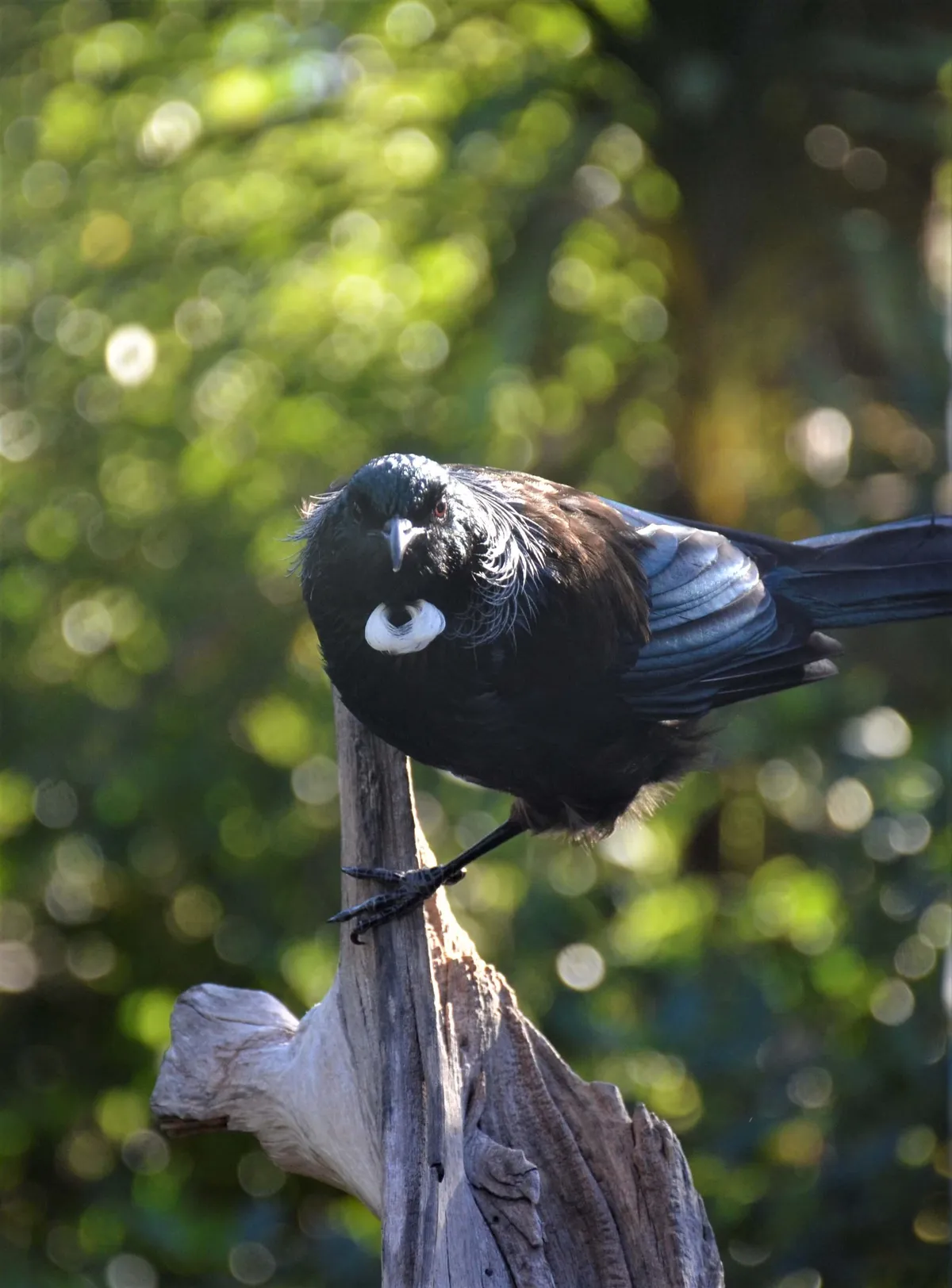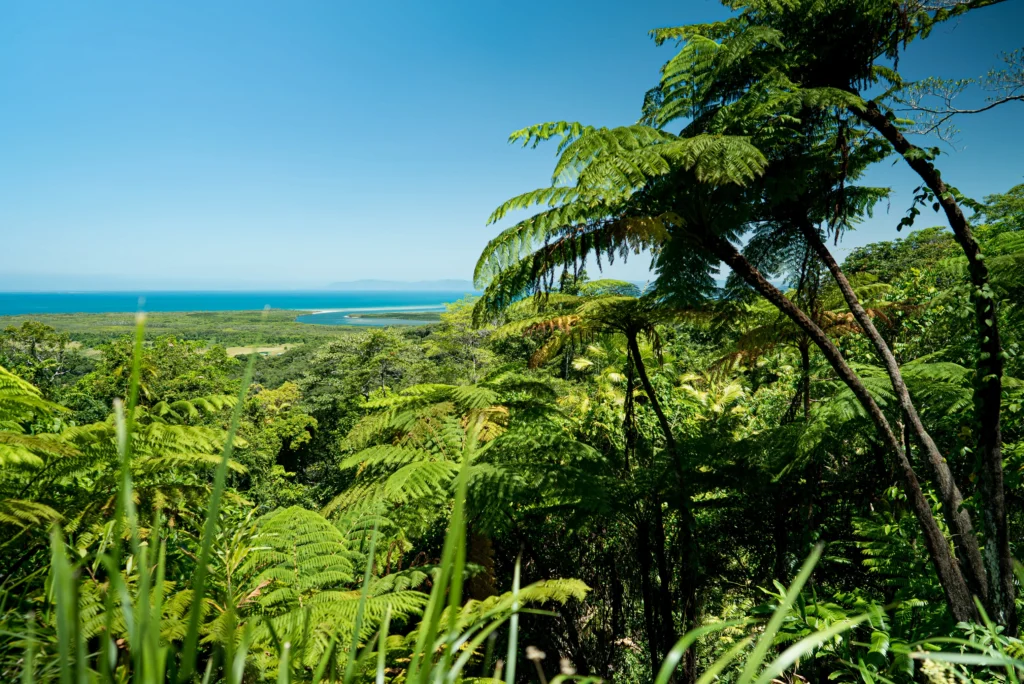
Program Costs
- Tuition
- Room & Board
- Total
Application Deadlines
Resources
Rainforest to Reef
In northern Queensland, the Wet Tropics rainforest presses in with towering figs, curtain-like vines, and a chorus of unseen birds. Students spend much of their semester here, tracking elusive marsupials, measuring bird populations by call, and conducting nocturnal spotlighting to reveal hidden biodiversity. At night, surveys often reveal frog calls from hidden pools, while sightings of cassowaries underscore both the vulnerability and persistence of rainforest species. Students also step briefly into the outback and reef, glimpsing how fragmented ecosystems still link together. Every survey, spotlight, and data sheet contributes to a story still unfolding in one of the world’s most vibrant yet pressured ecosystems.
- Survey Atherton Tablelands forest-to-savanna transitions with GPS plots and plant ID, linking soil chemistry, fire history, and habitat change.
- Assess coral cover and reef fish populations on snorkel surveys, then prepare site-specific environmental impact assessments with actionable recommendations.
- Restore degraded riparian corridors alongside local partners, collect spatial data for long-term revegetation databases, and monitor wildlife recolonization patterns.
- Learn from and integrate Traditional Owner knowledge on land, agriculture, and water into cross-cultural conservation strategies that navigate ongoing policy tensions.
- Conduct Directed Research: frame a stakeholder-driven question, collect and analyze field data with faculty guidance, and present actionable findings to local partners.
Academics
This academically rigorous program follows a six-day/week schedule. The interdisciplinary curriculum is designed to help students actively discover and understand the complexities of environmental, social, and economic issues in Australia.
Major academic themes include:
- Rainforest ecology and conservation
- Climate change
- Habitat restoration ecology
- Threatened species conservation
- Aboriginal ecotourism
- Development and settlement in the rainforest
- Rainforest fragmentation and recovery
- Forest ecotones
- Animal behavior
Courses
On the Tropical Rainforest Studies program, you will take three 4-credit disciplinary courses and a 4-credit capstone Directed Research course. Courses are participatory in nature and are designed to foster inquiry and active learning. Each course combines lectures, field exercises, assignments, tests, and research. All courses are taught in English.
Directed Research – Australia
This course prepares students to distinguish hidden assumptions in scientific approaches and separate fact from interpretation, cause from correlation, and advocacy from objectivity. Students learn specific tools including:
- Experimental design
- Field techniques
- Basic descriptive statistics
- Parametric and non-parametric quantitative analysis
Emphasis is placed on succinct scientific writing, graphic and tabular presentation of results, and effective delivery of oral presentations.
Tropical Biome Ecology & Climate Change
In this course, you will obtain a broad appreciation of the diversity and dynamics of tropical terrestrial & marine biomes. You will be introduced to the current and past distributions of tropical rainforests, dry forest, savannas and coastal biomes, their biodiversity, and their relationships with the abiotic environment, human use, present threats, and restoration practices. This course aims to bring together an understanding of the underlying ecological processes that affect different biomes with the role of human society in shaping the present and future rainforests of the Wet Tropics & the coral reefs of the Great Barrier Reef. The course will take the rainforest Australian Wet Tropics & the coral reefs of the Great Barrier Reef (GBR) as case studies to investigate this field, yet many of the skills you learn here can be transferred to other systems. Topics covered will include: biophysical determinants vegetation and coral reef distribution; past, present, and future threats to Wet Tropics rainforests & GBR; and the theory and practice of rainforest and coral restoration.
The course also has a practical component. You will be taught field techniques for carrying out field research, data analysis, and communication of results.
Wildlife & Conservation Biology
This course identifies threats to wildlife populations, how to obtain data on the impact of these threats on wildlife populations and how to select and apply appropriate conservation methods to mitigate these threats. We will look at these aspects in general and then demonstrate them in case studies of species in the Wet Tropics. To formulate a background understanding of habitats of the Wet Tropic’s wildlife, we will explore the origin of the main landscape formations of this part of Australia by looking at geological and biogeographical factors that shaped the landscape and its biota. You will be introduced to Australia’s fauna and the unique species that inhabit the diverse habitats of the Wet Tropics. We then will deal with some basic ecological concepts of biodiversity and why so many species can co-exist in one place.
The course is a mixture of class lectures, field lectures, field laboratory courses, workshops, field trips, and readings to complement the material presented in the lectures. A major emphasis is placed on field skills, the collection, management and analyses of data, and skills of writing a scientific paper.
Environmental Sustainability and Socio-economic Values
This course explores the contemporary environmental and sustainability issues and also touches broadly on the historical, social-cultural, economic and political factors that determine the use of natural resources, with particular emphasis on, but not limited to, the Wet Tropics of Australia. Topics to be covered in this course include; environmentalism, sustainable food production and livelihoods, the impact of human activities on terrestrial and marine biomes, conservation conflicts, resource governance and so on. In addition, students will be introduced to social science research methods, while a visit to a local Aboriginal community will help them gain a better understanding of the first Australian’s enviro-cultural heritage values.
Throughout the course students will be introduced to, and are expected to gain hands-on experience on social research techniques.
Core Skills
You will gain practical skills in the field such as: GIS use and applications, species identification and population monitoring, forest survey methods, citizen science protocols, research design and implementation, quantitative and qualitative data collection and analysis, and research presentation.
Field Sites
You will visit different ecosystems and communities which may include primary and secondary tropical rainforest, the Great Barrier Reef, tropical savanna, wet sclerophyll forests, coastal scrub and mangrove, Melaleuca (paperbark) swamps, Indigenous communities, and local conservation and restoration groups.
Other Australia Programs
Rainforest to Reef
More Information
Program Costs
- Tuition
- Room & Board
- Total
Rainforests of Australia
More Information
Program Costs
- Tuition
- Room & Board
- Total
Marsupials of Australia
More Information
Program Costs
- Tuition
- Room & Board
- Total

